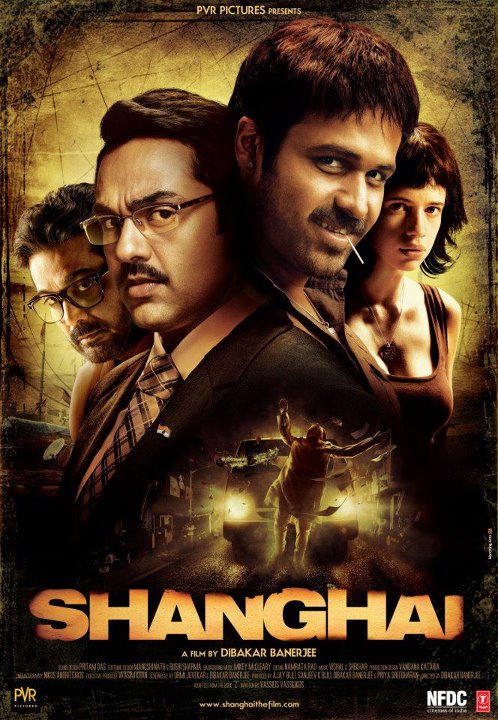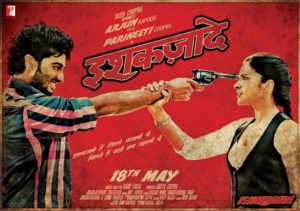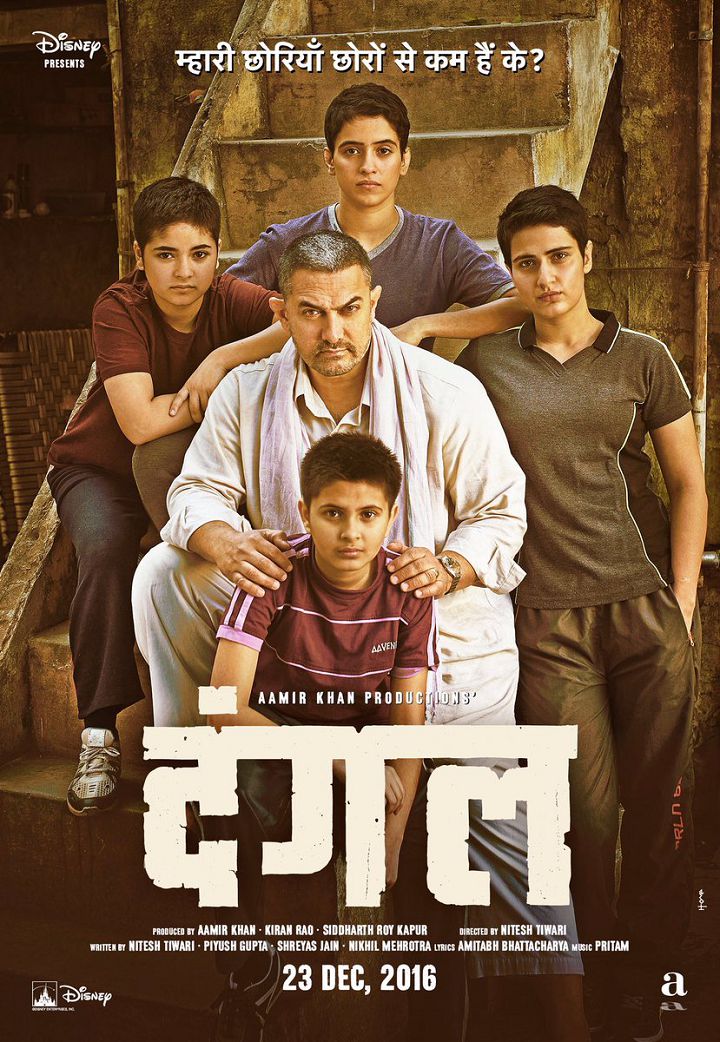 Direction: Vishal Bhardwaj
Direction: Vishal Bhardwaj
Actors: Shahid Kapoor, Tabu, Kay Kay Menon, Irrfan Khan, Shraddha Kapoor
Rating: ***1/2
There is much in Haider that deserves a standing ovation. Let’s start with the courage of director Vishal Bhardwaj. Hamlet is one of Shakespeare’s most difficult and ambiguous texts. It’s also his longest— it takes over four hours to deliver.
Hamlet in itself is a beast to be tamed. Vishal and his co-writer, the acclaimed Kashmiri journalist Basharat Peer, transplant the play to Kashmir. It plays out against a socio-political tragedy that has been wrought over six decades and that has a Rashomon-like quality to it — the heroes and villains switch places, depending on the narrator.
The result is a film that is problematic and far too long, but also thrillingly ambitious and powerful.
The action takes place in 1995. There is something rotten in paradise. Pura Kashmir quaid khana hai, a character remarks. Haider, played by Shahid Kapoor, returns home from Aligarh.
His father, a doctor who tries to save a militant’s life, has been imprisoned by the army. His house has been razed. His mother Ghazala, played by Tabu, has moved into his uncle’s house. The air is thick with deceit. Haider the poet slowly transforms into Haider the murderer.
Haider was shot almost entirely in Kashmir, but Vishal isn’t interested in presenting the picturesque tourist spots. Instead, we see narrow lanes, unadorned homes and swathes of snow that turn red as the bodies pile up. Vishal doesn’t flinch from brutality — men are murdered and abducted by Indian forces while women weep and a strange madness envelops the land. It’s horrific.
It’s also stretched and structurally disjointed. At one point, a romantic song randomly interrupts the flow. The Kashmiri accents are inconsistent. In places the narrative meanders, and Vishal seems to be losing his grip. At times, I got restless and wondered if perhaps the makers had bitten off more than they could chew.
But the one thing that doesn’t falter is the talent. Kay Kay Menon, whose ability is wasted in films like Raja Natwarlal, returns to form as the conniving advocate who covets his brother’s wife.
Irrfan Khan, playing the militant Roohdaar, brings an unflashy competence to the story. In the beginning, Shahid seems out of his depth; this is, after all, one of the toughest roles in literature.
One that actors like Sir Laurence Olivier and Kenneth Branagh wrestled with. But slowly Shahid comes to inhabit Haider, veering from rage to jealousy to madness in a heartbeat. And towering above them all is Tabu— the mother who aches, loves and ultimately loses.
At the heart of Haider is the love between a passionate, complex woman who seeks a sliver of happiness amidst overwhelming circumstances, and her son, who both loves her with an unnatural intensity and hates her for her betrayal of his father. Vishal handles the Oedipal undertones with exquisite daring and understanding. This relationship powers the film. Haider must be seen for this alone.
Go into the film knowing that it is problematic and unwieldy. And that it is one side of the story — Kashmiri Pundits get a token mention and, after being cast as the villain, the Indian army gets a line of praise for its handling of the floods in Kashmir.
Those are stories that perhaps other filmmakers will choose to tell. But I can guarantee that you will emerge from Haider shell-shocked. And when was the last time a Hindi film did that to you?
Tags: Anupama Chopra Critics Reviews Haider Irfan Khan Kay Kay Menon Reviews Shahid Kapoor Shraddha Kapoor Tabu Vishal Bhardwaj








Haider Movie Review by Raja Sen
————
Haider may be Vishal Bhardwaj’s best film
Last updated on: October 01, 2014 19:09 IST
Vishal Bharadwaj’s Haider is one of the most powerful political films we’ve ever made, a bonafide masterpiece that throbs with intensity and purpose, says Raja Sen.
Something is rotten in the state two countries call their own.
Not that we’ve really let that show on screen.
Hindi cinema hasn’t looked into Kashmir, preferring to gaze at it instead.
Haider changes all that, with filmmaker Vishal Bhardwaj probing into the valley nimbly and incisively — we may, at this point, picture the director as a particularly poetic insurgent, wearing Shakespeare for a cloak.
This is not a simple adaptation, this takes not a simplistic stance; Haider is a remarkable achievement and one of the most powerful political films we’ve ever made, a bonafide masterpiece that throbs with intensity and purpose.
It is a staggeringly clever take on Hamlet, one whose departures from the Bard’s original are as thrilling as its closely-hewn loyalty.
The film is set in 1995, with Kashmir in the murkiest of limbos, at a time when it’s anybody’s guess whether any man wearing a long, all-shrouding phiran is hiding either a pot of hot coals or a hand-grenade. Haider — in case you haven’t guessed — is the kind of film that carries both.
The Hamlet here is Haider, a poetry student returning to Kashmir, summoned by the destruction of the family house and the disappearance of his father.
He finds his ‘half-widowed’ mother, Ghazala, laughing dazzlingly by the sunlight and his uncle, Khurram, dancing.
He is disgusted, depressed, and desperate for an answer, for a way forward.
And, on one not-so farfetched afternoon given the state he’s in, a mysterious man appears to replace his loathing with fury — to arm a clueless, restless young man with murderous intent.
The allegories are elegantly drawn and exquisitely sharp, like bejewelled daggers.
The film is written by Bhardwaj and acclaimed journalist (and former Rediff writer) Basharrat Peer, and it is bold for many reasons.
The two stunning Shakespeare adaptations Bhardwaj made before this stayed close to the structure of the originals: Maqbool whimsically played fast-and-loose with characterisations but managed to wrap a crime-boss film neatly around the Scottish play; Omkara stayed so ingenuously loyal to Othello that it even translated lines of dialogue and had pacing similar to the play, but left out the monologues.
Haider, while leaving in the crucial monologues, makes audacious changes to the film — for example, the play’s plot only kicks in when the ghost (or the man with the ghost IDs, more accurately) appears, around the midway mark — and several key moments deviate dramatically from the original.
These are not subtle changes but these shifts are what make Haider a truly ambitious film.
It bludgeons away from the original because, just like the world it is set in, harsh changes are called for.
A young man finds himself fatherless — de-fathered by the machinery of the state, in fact — and tormented by local demons, terrorists and politicians.
In Kashmir, this saga of disappearance and drama, of uncertainty and unrest, cannot be the tale of one prince or one exalted family; in Kashmir, where mothers know the name ‘Kalashnikov’ all too well, there are too many Hamlets.
The detailing is a marvel.
Characters speak with, as Robert Plant would say “tongues of lilting grace,” in that delightful, characteristically Kashmiri way of hardboiled consonants and fluid vowels.
A doctor’s coat is chequered, just like the local phirans and jackets, chairs and beds are ornately whittled into works of art we can sit on, and the bedsheets are beautiful, chain-stitched wonders.
The authenticity is constant, and cinematographer Pankaj Kumar captures detail without lingering gratuitously on it, preferring instead to shoot from the characters’ un-touristy eyes or — better still — to eavesdrop close to them, hovering too-close with brilliant, hand-held unpredictability.
We see the distractingly attractive world around them, sure, but the narrative stays grim and, thus hand-in-hand, Kumar’s composition centres on things so close you can touch — the smoke rising from a cup of kahwa in the cold, an accusingly large dot of mehndi on the back of a hand, letters handed out by the postman in plastic packets as if he were delivering cold cuts.
This is a film you could watch with the sound muted.
But you shouldn’t.
Oh no.
The music is gorgeous, underscoring the narrative perfectly. (The gravedigger song is my favourite.) Yet while we’re used to Bhardwaj the director making way for Bhardwaj the composer (and, when we’re luckiest, Bhardwaj the singer), the Haider soundtrack knows its place and is allowed no room to showboat.
The grim narrative carries strong political heft, and so assured is Bhardwaj of what he’s saying and the way it needs to be said that he doesn’t seem to feel the temptation to sugarcoat, to entertain with either song or wink.
The film stays intense throughout, almost breathlessly so. Like a chokehold from someone you love.
The performances are uniformly stunning.
Shahid Kapoor, dealing with one of Shakespeare’s most challenging heroes, does so with impressive sincerity. He manages the many shifts of mood skilfully but always appears like an actor performing a role gamely instead of an actor who has become the character: he’s very good, just not as unaffected as the actors around him.
An actor called Narendra Jha who plays a doctor is an absolute find, Lalit Parimoo is excellent, Shraddha Kapoor is very believable in the Ophelia part, two Salman Khan fans (Sumit Kaul and Rajat Bhagat) are a lot of fun, and it’s good to see Kulbhushan Kharbanda get well-forged lines of dialogue.
At the heart of the film stands Tabu.
Her Ghazala is a heartbreaking character, all passion and preening and perpetually inappropriate relationships.
She looks luminous the first time we see her, but the great actress can amazingly adjust that candle-wick lighting up her face, so not just does she shine and simmer, but she can flicker.
The way she looks into the mirror while her son kisses her… It’s haunting.
Old Bhardwaj alumnus and former Macbeth Irrfan Khan, meanwhile, is striking in a very clever role that both shows off his screen-presence and kicks the film into a different gear.
The best performance comes from Kay Kay Menon in the Claudius role.
His Khurram is a slimeball aching to be accepted as a success, an unctuous man and yet one who likes to strut, who likes to revel in his victories — but who, at the singular point of triumph — can only find a fellow conspirator to embrace.
This is a traditionally meaty part, immortalised by Derek Jacobi in the 1996 Hamlet, but Kay Kay gives the character his own terrific edge, twitchy and tentative and surprisingly warm.
One particularly unforgettable moment in the film features Peer himself in a cameo as a man afraid to cross the threshold into his own house.
That particular scene, and its subsequent, immediate resolution, comes from a short-story by Kashmiri writer Akhtar Mohiuddin. It is a great story of such frightening clarity that most filmmakers would have milked it into a longer scene, if not a short-film.
Bhardwaj, now more than ever, seems assured of the power of his content, and knows when to pull his punches and doesn’t fall for obvious temptations.
The result is a knockout, a film that makes you smell corpses, that makes you shudder with melancholia, and a film that points accusing fingers. A film that doesn’t flinch.
Is Haider Vishal Bhardwaj’s best film?
That is the question. (The answer, naturally, lies behind the fact that we can even ask.)
Rediff Rating: 5
Link
Positive reviews 🙂 . After long time I’m looking forward to watching a Hindi movie .
Some right wing ppl and bhakts are busy tweeting #boycotthaider. LOL
My favorite critic, Raja Sen has given 5 star (never saw him giving 5/5 rating for a movie before)!!!! Looks like a must watch.
Haider Movie Review by Rajeev Masand
Rating: 3.5
October 02, 2014
Cast: Shahid Kapoor, Tabu, Shraddha Kapoor, Kay Kay Menon, Irrfan Khan, Narendra Jha, Aamir Bashir
Director: Vishal Bhardwaj
There’s a sweeping, operatic quality to Haider, director Vishal Bhardwaj’s robust staging of Hamlet against the troubled landscape of Kashmir at the peak of militancy in the mid-nineties. The ongoing insurgency, which has pitted militants and separatists against security forces for decades, makes for a potent setting. But Bhardwaj – who successfully rooted Omkara in the badlands of Uttar Pradesh, and Maqbool in the Mumbai underworld – isn’t one to use backdrop merely as decorative wallpaper. He presents a warts-and-all insider’s view, often making scathing observations like the identity crisis faced by local Kashmiris, or the torture of separatists and terror suspects in army camps. This is easily the director’s most political film.
At the centre of this volatile world he places his protagonist, Haider (Shahid Kapoor), a young student who returns home from university on receiving news of his father’s disappearance after being picked up by the army. Equally upsetting is the discovery that his mother, Ghazala (Tabu), has taken up with his father’s brother, Khurram (Kay Kay Menon). When Haider learns the truth behind his father’s death, he’s plunged into grief and rage, and is possibly losing his mind.
Bhardwaj and his co-writer, journalist-author Basharrat Peer, lay out a canvas ripe for revenge and tragedy. But the plot only kicks in halfway into the film when Irrfan Khan’s Roohdar, a mysterious figure with a questionable identity (standing in for the ghost from the original play), shows up and sets the wheels in motion.
As if conducting an orchestra, Bhardwaj lines up his instruments, employing camera, music, and artful production design to deliver a moody drama that feels consistently authentic. Pankaj Kumar’s cinematography, in particular, is one of the film’s trump cards. The stunning landscapes and the inventively shot play-within-a-play song-sequence aside, we get a real, lived-in sense of Kashmir as inhabited by the characters themselves.
The film benefits also from a top-notch cast who do some of their best work here. Kay Kay Menon sinks his teeth into the slimy Claudius role, and Shraddha Kapoor, blessed with the most expressive eyes, oozes earnestness as Arshia, torn between familial pressure and her childhood sweetheart Haider. With minimal dialogue, Irrfan Khan leaves a lasting impression as the shadowy stranger bearing a crucial message. And as Haider himself, Shahid Kapoor delivers his strongest performance yet, skillfully going from helpless to grieving to obsessed with revenge. The film though belongs to Tabu, who infuses an aching vulnerability to her part. Fragile and heartbreaking, she is the secret strength of Bhardwaj’s film. Watch her in those scenes with Shahid that are brimming with Oedipal undertones; they’ll give you gooseflesh.
For a film set in a world plagued with constant strife, Haider is also surprisingly laced with dark humor. In Salman and Salman, the filmmaker gives us a pair of bumbling informants who also happen to be die-hard fans of the Bollywood superstar. A song filmed on a quartet of gravediggers is nicely cheeky. “Aao tum bhi apni kabr khodo aur isme so jao,” one of them tells Haider.
With so much going on, it’s no surprise that the film feels inordinately long – and it is, unfolding leisurely at 2 hours and 41 minutes! The first half is particularly dense, and introduces multiple narrative strands that are abandoned without explanation. I never quite figured out the mission announced by an army chief (Ashish Vidyarthi), or what happened to Kulbushan Kharbanda who turned up in one scene as Ghazala’s father-in-law, never to be seen or referred to again.
A few such hiccups aside, Haider is an elegant, thrilling film that casts a brave, unflinching eye on the Kashmir struggle. In deviating from the original ending of Hamlet, it also makes a necessary point about the cyclical nature of revenge and violence.
Its deliberate pacing may not work for all, but this is a solid, well-acted movie that deserves your time. I’m going with three-and-a-half out of five. To see or not to see? Do you really have to ask?
Link
Here’s my take on Haider: 2 minutes ago
my review of #Haider https://www.bollywoodguy.com/haider-movie-review/ … @ShraddhaKapoor
Mainstream Critics Reviews being good is as expected but good to know that you also liked it. Looking forward to watching it.
Is that your site or someone else’s?
Its not mine. Its someone else’s.
And yes, pretty good film.
its gurvinder pals website. he also invited me to write reviews on his blog but on the condition that i do not post reviews on tq. i declined him
Baba Ji, there’s nothing such that I can’t write on TQ because i am writing on that website. When I feel I want to write something on TQ, I will.
You should have posted your Haider review here and posted your Bang Bang review there as gurvinder pal is a Hrithik fan and Baba has already posted his Bang Bang review here 🙂
looks like he didnt explain you his T&C. talk to him again.